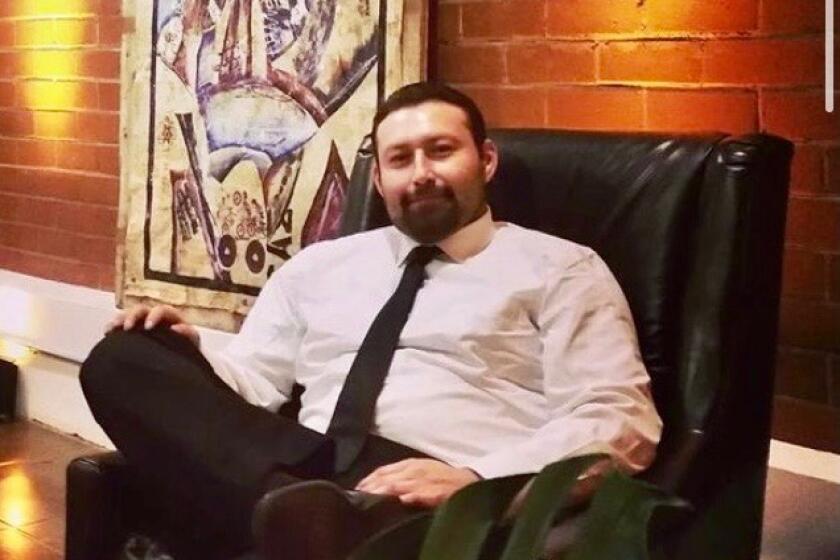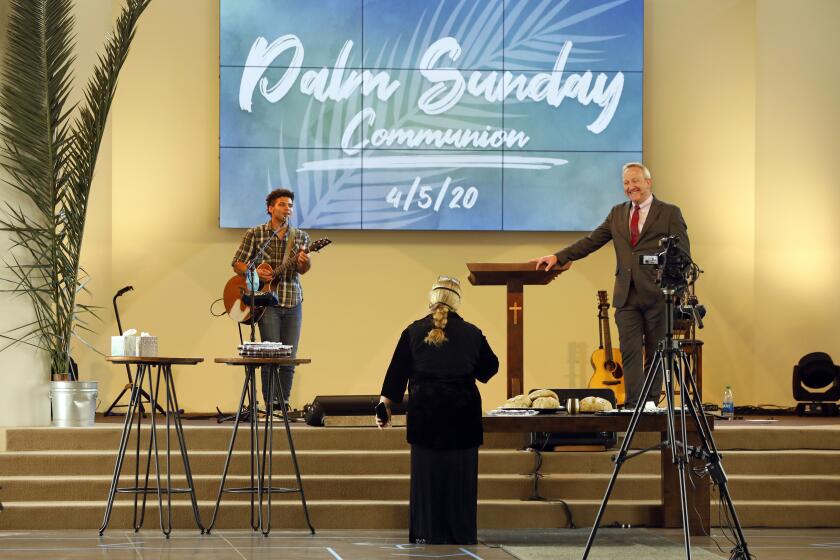L.A. County Sheriff’s Department warns staffers about contact with The Times
Just days after The Times published a story revealing that Los Angeles County Sheriff Lee Baca had personally launched a criminal investigation on behalf of a political donor, a sheriff’s captain sent an e-mail to deputies directing them not to speak to the newspaper.
“FYI all media inquiries are to be forwarded” to headquarters “for review and assignment. Specifically any LA Times requests,” the e-mail read.
Around the same time, another department official sent an e-mail with the subject line “Inquiries from The Los Angeles Times,” telling subordinates that any contact with the media needed to be reported to supervisors.
Sheriff’s spokesman Steve Whitmore said the e-mails, obtained by The Times through a public records request, had no connection to the story the newspaper had run the same week on Baca personally opening a criminal investigation on behalf of Beverly Hills business magnate Ezat Delijani. Rather, Whitmore said, the messages were routine policy reminders for handling all media requests. Whitmore denied that the newspaper was being singled out, saying that the term “L.A. Times” was “just their way of saying a media outlet in general.”
“Sometimes they’ll say Channel 4. Sometimes they’ll say Daily Breeze. It’s their way of saying the media,” Whitmore continued. “It doesn’t mean anything.”
However, Capt. Anselmo Gonzalez, the author of one of the e-mails, said he singled out The Times “because that was the message I received.” He said the message came from a supervisor, but he couldn’t recall who, or how the message was delivered.
“I don’t know what stories were going on at the time, and I don’t care,” he said.
Lt. Silverio Rivas, who sent the other e-mail, said he did so without being directed to. Even though he wrote “Inquiries from The Los Angeles Times” in the subject line, he said the message was intended only as a routine briefing to deputies concerning all media requests.
Days before the e-mails went out, The Times published an article detailing a sheriff’s investigation launched in the Beverly Hills Police Department’s jurisdiction on behalf of Delijani, who has given Baca wine and other expensive gifts, along with campaign contributions.
In that case, Delijani had accused a tenant of lease forgery. After the Beverly Hills police had concluded the dispute was a civil matter, Delijani’s son sent an e-mail directly to a Baca aide, prompting the sheriff to send a handwritten note to his then-chief of detectives requesting a criminal investigation, records show. The case was labeled a “special” investigation in internal sheriff’s memos and given “rush” status, generally reserved for high-priority cases such as homicides.
After an exhaustive investigation, prosecutors declined to file charges, citing a lack of evidence, a decision that was reversed last week after an appeal from the Sheriff’s Department.
Law enforcement experts said it was highly unusual for one police agency to launch an investigation in another agency’s jurisdiction without being invited, and said the case showed favoritism on Baca’s part. Baca has denied wrongdoing, pointing out that the Sheriff’s Department can investigate all crimes in Los Angeles County, even those that occur in the jurisdiction of other police departments.
Baca deferred all questions about the e-mails to his spokesman, saying “I’m not involved so I’m not answering questions.”
Whitmore said the messages were part of an ongoing effort to highlight department policy: that all media inquiries be processed through sheriff’s headquarters.
That policy, however, is regularly ignored. “Do people talk directly to the press? They do it all the time,” Whitmore acknowledged. “Will that continue? I suspect so. This is America.”
“The Sheriff’s Department is probably the most transparent law enforcement agency in the nation, and that’s because of Sheriff Baca,” Whitmore said.
The Los Angeles Police Department’s media policies do not require notifying headquarters. “Officers should be open in their dealings with the public and, unless there is reason to the contrary, they should supply requested information,” the agency’s manual reads.
More to Read
Sign up for Essential California
The most important California stories and recommendations in your inbox every morning.
You may occasionally receive promotional content from the Los Angeles Times.











